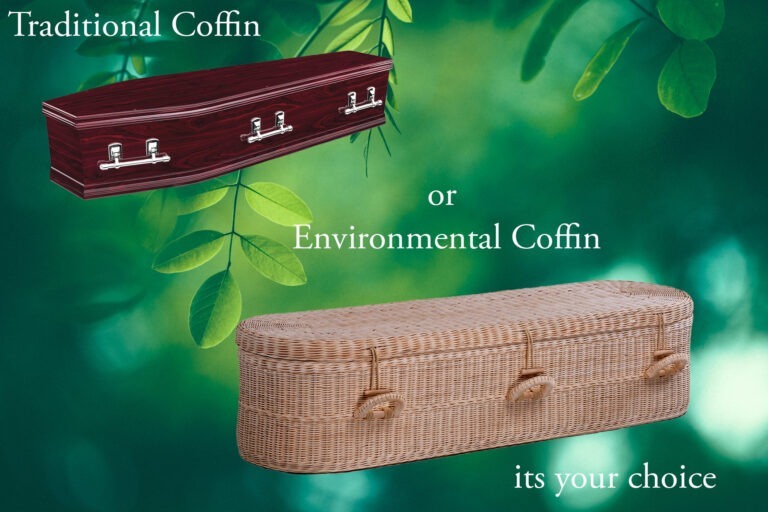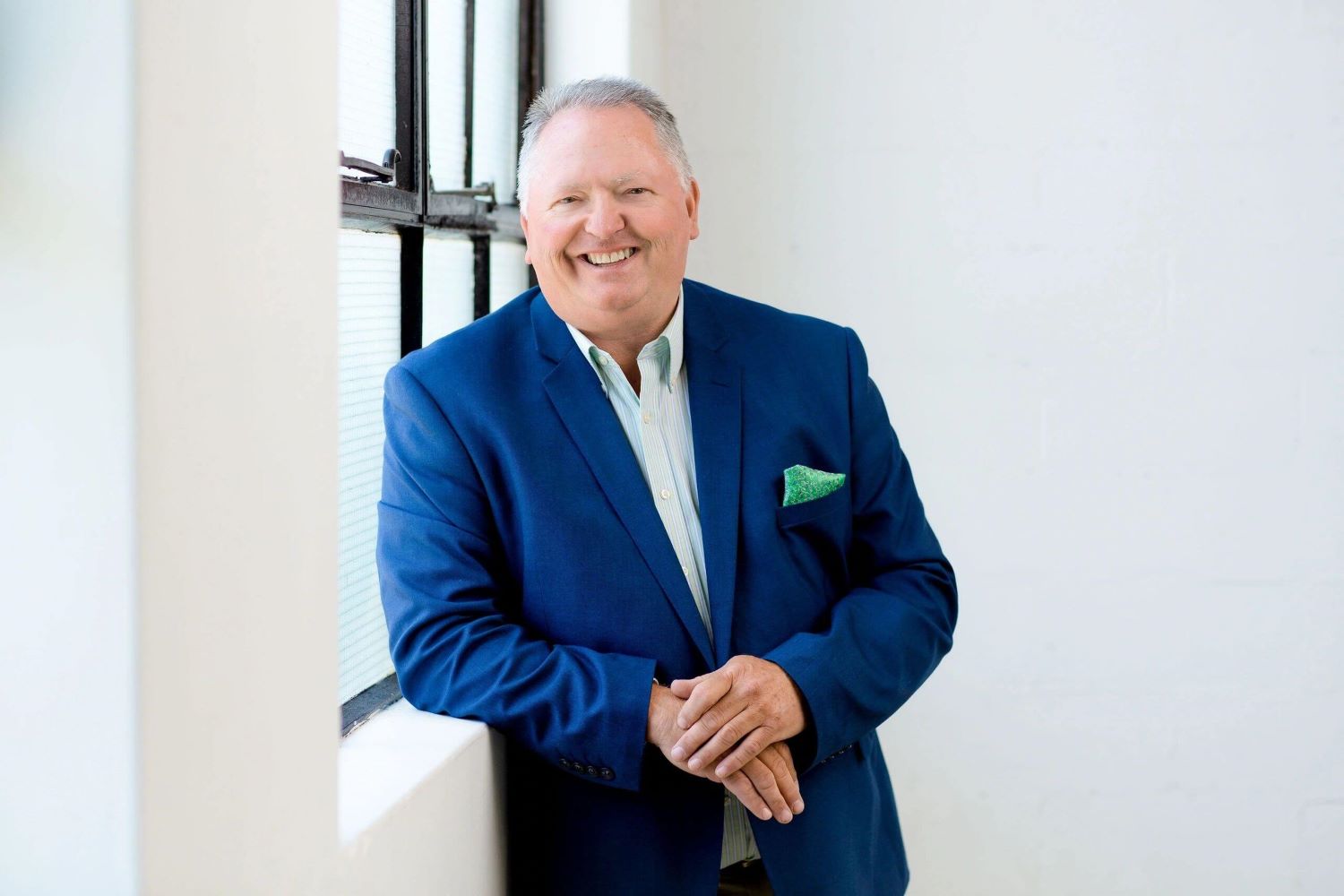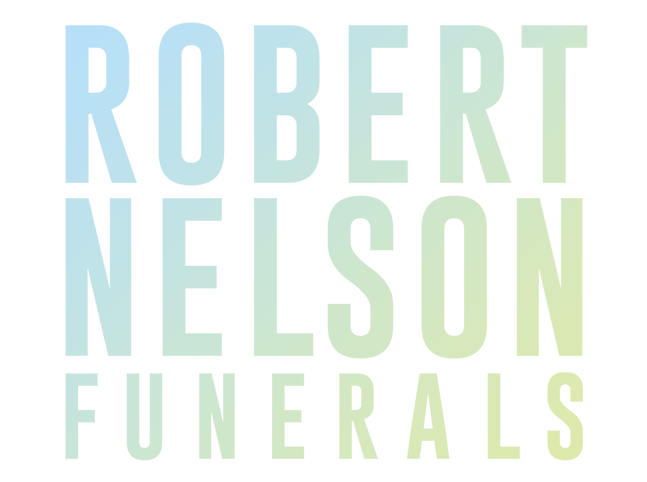
Traditional or Environmental Coffins , It's your choice.
- Traditional or Environmental Coffins, is your choice and your choices are being made easier.
- Environmental options typically refer to choices, practices, or solutions that prioritize the well-being of the environment and sustainability. Traditional options, on the other hand, often refer to established or conventional approaches that may not necessarily prioritize environmental concerns.
- Choosing Environmental Coffin Options or making environmentally friendly coffin choices is important for several reasons:
Sustainability: Environmental options help ensure the long-term health and viability of our planet. By choosing eco-friendly products, practices, and behaviors, we can reduce the negative impact on natural resources and ecosystems, which is essential for a sustainable future.
Reducing Environmental Impact: Many human activities, such as fossil fuel consumption, deforestation, and pollution, have had detrimental effects on the environment. Opting for environmentally friendly alternatives can help mitigate these impacts and contribute to a healthier planet
Health Benefits: Environmentally friendly choices often lead to improved air and water quality, reducing the risk of health issues like respiratory problems and waterborne diseases. Choosing organic and non-toxic products can also have direct health benefits.
Economic Benefits: In many cases, environmental options can lead to cost savings in the long run. For example, energy-efficient appliances can reduce electricity bills, and sustainable farming practices can lead to higher-quality and more resilient crops.
Regulatory Compliance: As governments and international organizations implement stricter environmental regulations, choosing environmentally responsible options can help individuals and businesses avoid legal and financial penalties.
Innovation and Job Creation: The shift towards environmentally friendly technologies and practices has led to innovation and the creation of new industries and job opportunities. For example, the renewable energy sector has experienced significant growth.
Climate Change Mitigation: One of the most pressing environmental issues is climate change. Choosing options that reduce greenhouse gas emissions, such as using public transportation, driving fuel-efficient vehicles, or adopting renewable energy sources, can help mitigate the impact of climate change.
Conservation of Biodiversity: Many environmental choices, such as protecting natural habitats and choosing sustainably sourced products, can help preserve biodiversity by reducing the destruction of ecosystems and species extinction
Global Responsibility: Environmental issues are global in nature, and we all share a responsibility to address them. By making environmentally conscious choices, individuals and societies can contribute to a collective effort to protect the planet.
Quality of Life: A cleaner environment and more sustainable practices can lead to an improved quality of life. Access to clean air and water, healthy ecosystems, and reduced pollution positively affect the well-being of individuals and communities.
Choosing environmental options is a multifaceted decision that benefits not only the planet but also the well-being of current and future generations. It is a proactive approach to address critical issues like climate change, pollution, and resource depletion while reaping personal and societal advantages.
Up until now the choice between environmental coffins and Traditional coffins has often been decided on price, as most environmental coffins have been considerably more expensive.
With our Environmental Choice Program, you can Choose between a Traditional Richmond Coffin or an Environmental Wicker at the same costs.
- Traditional Coffins: Traditional coffins are typically made from various materials such as hardwood (e.g., oak, walnut, mahogany), softwood (e.g., pine), metal (e.g., steel), or composite materials. These materials often involve the use of chemicals and non-renewable resources.
- or
- Environmental Coffins: Environmental or eco-friendly coffins are designed with sustainability in mind. They are often made from biodegradable or renewable materials such as bamboo, willow, cardboard. These materials break down more easily in the environment, reducing their long-term impact.
Ultimately, the choice between traditional coffins and environmental coffins depends on your personal preferences, cultural considerations, budget, and environmental values.
Traditional coffins and environmentally friendly coffins are two distinct options for burial or cremation, each with its own set of characteristics and considerations. Here’s a comparison between the two:
- Materials:
- Traditional Coffins: Traditional coffins are typically made from various materials such as hardwood (e.g., oak, walnut, mahogany), softwood (e.g., pine), metal (e.g., steel), or composite materials and plastics. These materials often involve the use of chemicals and non-renewable resources.
- Environmental Coffins: Environmental or eco-friendly coffins are designed with sustainability in mind. They are often made from biodegradable materials such as bamboo, willow, cardboard, or recycled paper. These materials break down more easily in the environment, reducing their long-term impact.
- Biodegradability:
- Traditional Coffins: Traditional coffins are often not biodegradable or decompose very slowly in the soil, contributing to a long-lasting environmental footprint.
- Environmental Coffins: Environmental coffins are designed to biodegrade naturally over time, allowing the deceased’s remains to return to the earth more quickly. This reduces the impact on the environment.
- Manufacturing and Resource Use:
- Traditional Coffins: The production of traditional coffins often requires the extraction of resources, energy-intensive manufacturing processes, and the use of potentially harmful chemicals, varnishes, and finishes.
- Environmental Coffins: The manufacturing of eco-friendly coffins typically involves fewer natural resources, less energy consumption, and a reduced environmental impact due to the use of sustainable and biodegradable materials.
- Cost:
- Traditional Coffins: Traditional coffins can vary widely in price, with some being quite expensive due to the materials and craftsmanship involved.
- Environmental Coffins: Eco-friendly coffins may be more affordable since they often use less expensive, sustainable materials.
- Aesthetic and Customization:
- Traditional Coffins: Traditional coffins offer a wide range of designs, finishes, and customization options, allowing families to choose a style that reflects their preferences and the deceased’s personality.
- Environmental Coffins: Eco-friendly coffins may have a more limited range of design options, and they may be considered less ornate or decorative compared to traditional coffins.
- Personal Values:
- Traditional Coffins: Some people may prefer traditional coffins due to cultural, religious, or personal reasons, or because they value the aesthetic and symbolism associated with them.
- Environmental Coffins: Individuals who prioritize sustainability, eco-consciousness, and reducing their ecological footprint may choose environmentally friendly coffins to align with their values.
In summary, the choice between environmental and traditional options often comes down to the values, priorities, and goals of individuals and customs. Environmental options tend to be more forward-looking and seek to address the pressing environmental challenges of our time, while traditional options may be rooted in established practices and may not always consider the long-term consequences for the environment.
Ultimately, the choice between traditional coffins and environmental coffins depends on personal preferences, cultural considerations, budget, and environmental values. Some individuals may opt for a compromise by choosing a more environmentally friendly version of a traditional coffin, such as one made from sustainably sourced wood.
Whatever your preference Robert Nelson Funerals can provide a wide range of preferences.
Check out our youtube video at https://youtu.be/Lv6DyrUGr2U
Call us on Ph (03) 9532 2111 or Email robert@robertnelsonfunerals.com.au

